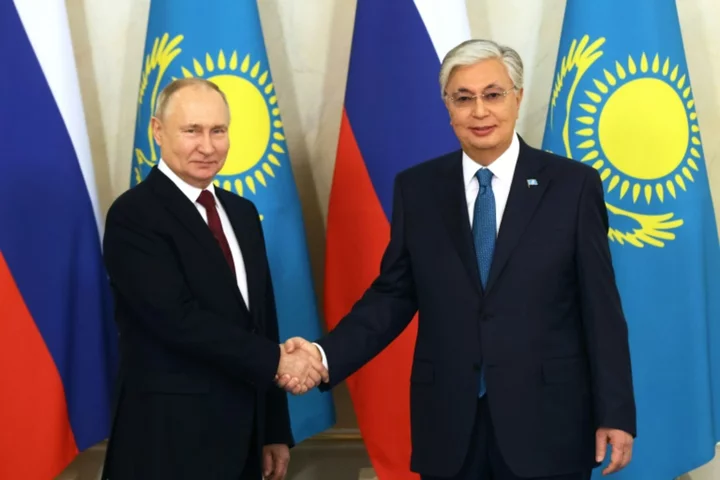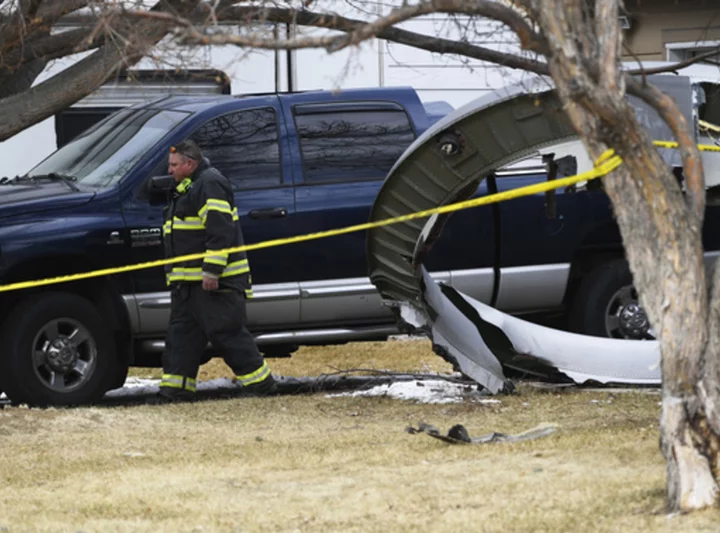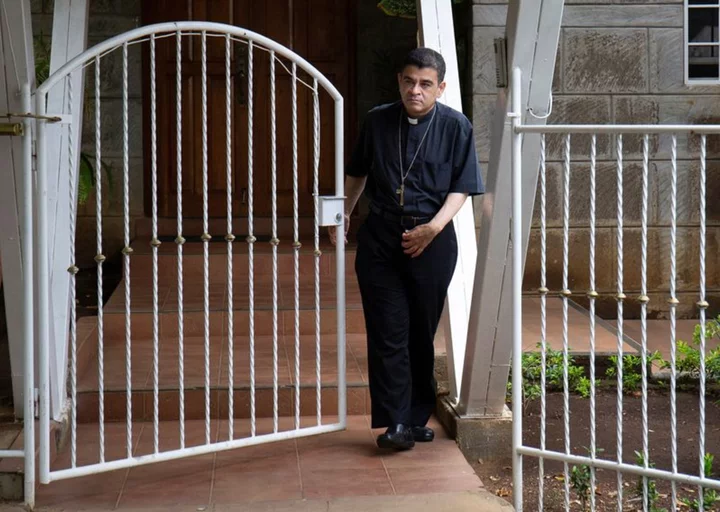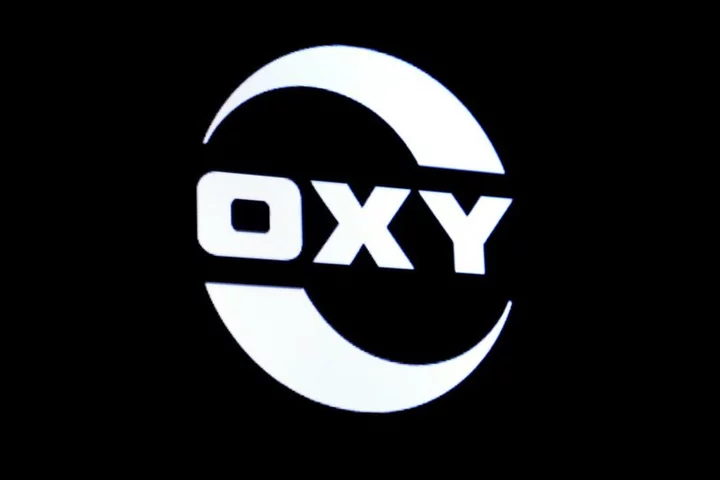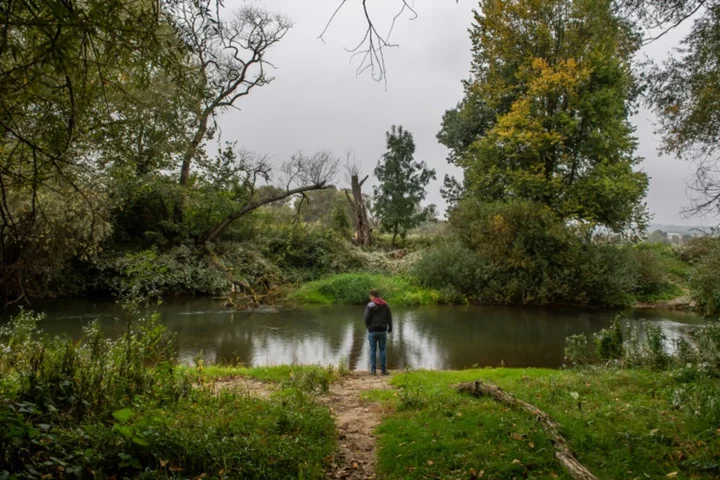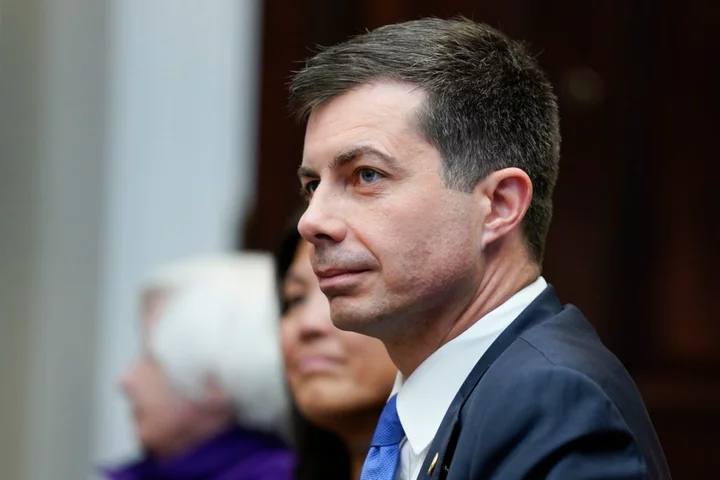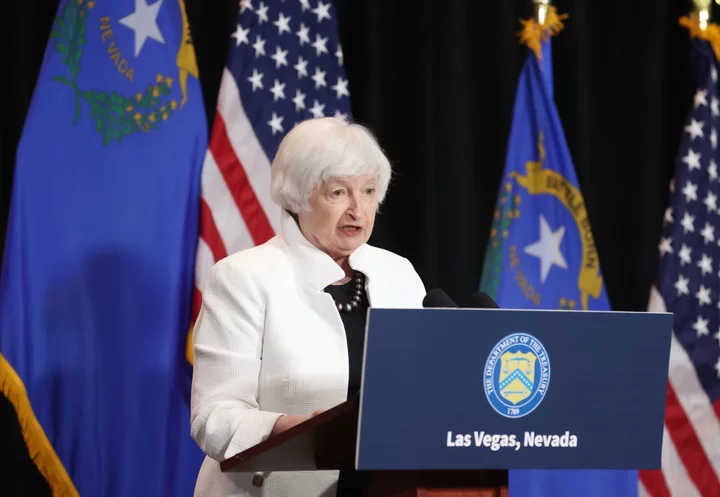Russian President Vladimir Putin visited Kazakhstan on Thursday to cement Moscow's ties with its old ally, while Turkish leader Recep Tayyip Erdogan criticised the West over the Israel-Hamas war during a separate trip to Uzbekistan.
The visits are the latest in a flurry of diplomatic activity in Central Asia, as Europe, Russia, Turkey, Iran and China all vie for influence in the region.
The former Soviet Republics in Central Asia are seeking to diversify their international partnerships.
Moscow's sway over a region it considers its sphere of influence has waned since it invaded Ukraine last February.
Kazakhstan has not backed the invasion of Ukraine and has promised to enforce sanctions on Moscow.
The West has raised concerns that ex-Soviet countries are being used as a back door for Russia to import banned goods.
But speaking at an economic summit in the Kazakh capital of Astana, the leaders of both Russian and Kazakhstan highlighted their historic connections.
Putin said the two countries were "not just allies but closest allies", while Kazakh President Kassym-Jomart Tokayev praised an "alliance with a rich past and a bright future".
Putin offered to boost cooperation in a string of sectors -- from the military and space to agriculture and nuclear power.
Moscow has upped its investments in Central Asia's energy sector, having been excluded from most of the European market under Western sanctions.
It is also discussing building nuclear power plants and hydroelectric projects in several countries.
But it faces intense competition from China, which has become a major investor across Central Asia through its Belt and Road Initiative, a gigantic infrastructure project.
Europe is also eyeing economic opportunities in the region.
Last week French President Emmanuel Macron made a high-profile visit to both Kazakhstan and Uzbekistan, alongside a 60-strong delegation of French business leaders.
- Erdogan blasts Western 'hypocrisy' -
More than 1,000 kilometres (600 miles) south, the leaders of Iran, Turkey, Pakistan, Azerbaijan and other Central Asian states were meeting in Uzbekistan for a summit of the Economic Cooperation Organisation.
While not on the official agenda, the war between Israel and Hamas was in the spotlight.
At the summit, Erdogan hardened his tone against both Israel and the West, while Iranian President Ebrahim Raisi -- who backs Hamas -- repeated Tehran's vehement opposition to Israel.
On October 7, Hamas launched an unprecedented attack on Israel that killed more than 1,400 people, mostly civilians, according to Israeli authorities.
Aiming to destroy Hamas, Israel responded with a relentless bombardment and ground invasion of the Gaza Strip that has killed more than 10,500 people, many of them children, according to the Hamas-run territory's health ministry.
Erdogan used a speech in Tashkent to call on Muslim countries to "raise our voices together to defend our Palestinian cause".
He also targeted the West for its "hypocrisy".
"The Israeli administration, which has the full support of Western countries ... is bombing schools, hospitals, churches, universities and civilian settlements," the Turkish leader said.
"Western countries, which constantly talk about human rights, freedoms and democracy, are watching all these Israeli massacres from afar," he added.
Iran's Raisi also repeated Tehran's attacks on the West and Israel in his address to the summit.
He said Israel had committed "terrible crimes" in Gaza and accused the United States of being a "partner in these crimes", according to his office.
Erdogan and Raisi also discussed the conflict in a separate bilateral meeting, the Turkish president's office said in a statement.
Ankara is pushing to be a guarantor state in any future ceasefire or peace settlement.
bur-bk-jc/jbr/gil

